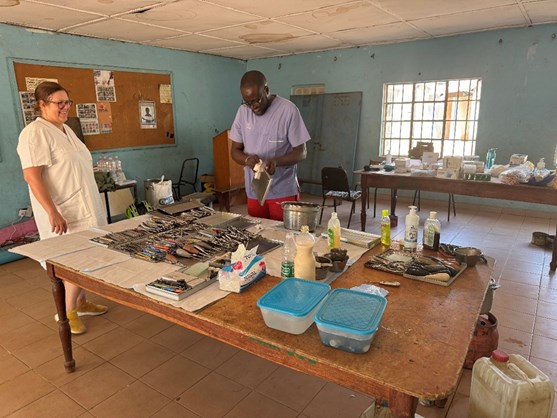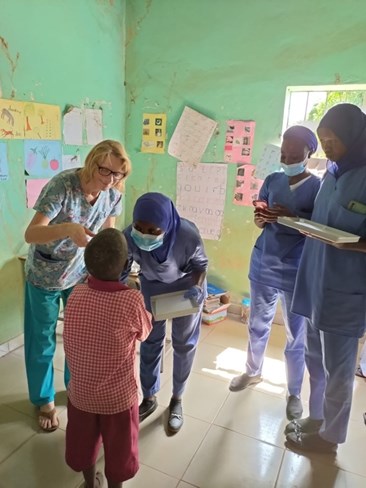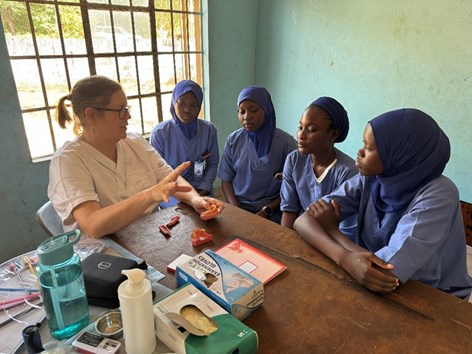In November I travelled back to The Gambia, a small country situated in West Africa, to continue a Dental Project that began a decade ago. Over this period, this extremely poor country has faced many struggles including a change of political rule and Covid-19. I have supported a Swedish based charity, Future in Our Hands, and have travelled to a town in the centre of the country called Soma, to provide basic Dental care and education. However, this year, thanks to the generous professional bursary provided by JOA, we planned to implement a dental prevention programme within the community.
I designed a Fluoride application programme that could be easily delivered to the school children in 3 large schools. In 2023, the dental team were able to trial the programme and identify key stakeholders within the community to train and help maintain the programme. So it was with great excitement that we arrived in Gambia with the Fluoride and a training programme ready to put into action.
The first day is always spent setting up a dental clinic in the largest school we visit. Providing dental treatment in this environment is not without its challenges as there is no running water, no electricity and it’s generally 38 degrees Celsius!

One of the aims of this project is not only to provide dental prevention for children in Soma, but to record measurable outcomes, with the hope that a reduction in dental decay experience can be achieved and the project extended to the whole country as part of a government scheme. To achieve this, it is necessary to have a base understanding of current disease levels. Throughout the week we screened several cohorts of children from 3 local schools. On the first day of screening, we came across a small 5-year-old girl who had a severe facial infection. The only appropriate course of action was to take her to the local hospital. Soma is a town with approximately double the population of Jersey. That day we were lucky as there was 1 doctor at the hospital – quite often there aren’t any. He could not take a radiograph as they do not have an X-ray facility, but did agree to admit the girl. We were able to visit most days and after 10 days she was discharged in a much healthier condition.

Our prevention programme includes the application of a Fluoride varnish as well as oral health education. Fluoride varnish has repeatedly been shown to reduce the incidence of dental decay especially if applied on a 3-month basis. The only realistic way to make this programme sustainable is to train a local workforce to deliver the programme in our absence. Luckily, in Soma there is a nursing school with an intake of 50 nurses a year and a very enthusiastic Principle.
Our team spent a few sessions teaching the principles of oral health education and explaining the aims of the Fluoride programme. The nurses visited the schools in small groups for a practical demonstration and then we supervised the Fluoride application on the children’s teeth. The nurses were really engaged and by the end of the week were delivering the programme with minimal input from my team.

The professional bursary I received from JOA provided the project with all the necessary materials to run this preventive programme, the first of its kind in The Gambia. The support is vital to ensure such projects are sustainable and able to continue to run in our absence. Once the nurses are qualified, they are posted throughout the country. It is hoped that the education and involvement in this oral health programme will slowly start to filter through to the wider community.
Future in our Hands will continue to support this programme over the next few years. At the end of this period, we hope to screen the children again and it would be wonderful if a significant reduction in dental disease is achieved.
I would like to take this opportunity to thank the members of JOA for their continued support and commitment to this project. The professional bursaries are a fantastic opportunity for Jersey people to use their skills to train and support communities throughout the world and I would encourage anyone to consider giving volunteering a go.


